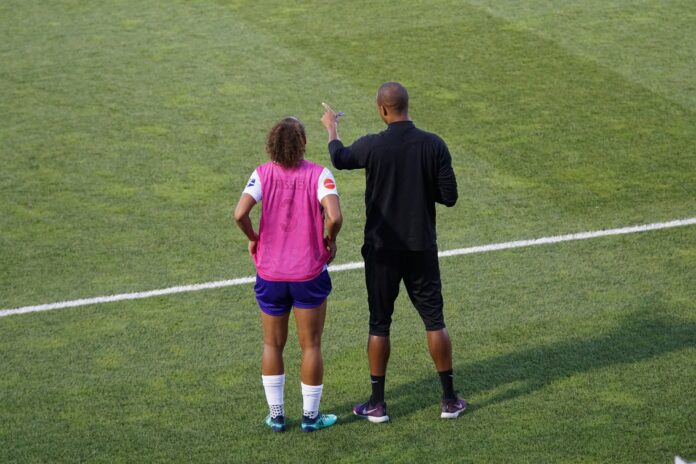
In a game increasingly defined by billion-euro transfers, advanced analytics and global scouting networks, one of football’s most important revolutions has flown under the radar: the rise of Player Care. Every department in modern clubs, from performance analysis to medical teams, has undergone a transformation. Yet the human side of the professional life, the daily personal, social and emotional scaffolding for players, is only now receiving serious recognition. In the era of high pressure, international mobility and ever-rising expectations, Player Care has become not just a nicety but an essential pillar of sustainable sporting success.
From logistics to holistic care
The earliest incarnations of Player Care were modest: a club liaison organising housing, transport and paperwork for a young signing, perhaps helping with immigration or a driver’s license. But even then the cracks were visible. Many players arriving from abroad, or stepping up from youth to senior squads, found themselves navigating unfamiliar cities, languages, social isolation and personal stress, often without structured support.
Take the story recounted by Hugo Scheckter, one of the field’s leading practitioners. He described a young foreign signing whose wife had spent six months in a flat, isolated and unable to drive or speak English – and ultimately the player left the club for a fraction of his transfer fee. “That was 100% on me,” Scheckter later reflected. Those missed details were not “nice extras” but part of the performance equation. From these early mis-steps emerged a broader awareness that players are more than athletes, they are individuals with complex lives.
“Those missed details were not ‘nice extras’ but part of the performance equation.”
Modernising the discipline
Today’s clubs are rewriting the rule-book. Player Care is no longer an add-on, it is a formal discipline, with dedicated teams staffed by specialists in psychology, welfare, transition and relocation. The UK has led the way; the organisation The Player Care Group (TPCG) was founded in 2020 to audit, train and build Player Care departments across top clubs.
Clubs such as Brighton & Hove Albion have built integrated welfare programmes stretching from academy age up to first team, as noted by emotional-welfare specialist Sue Parris: “Player Care is broadly logistics, personal development, welfare… until you realise how many young people are living away from home for the first time, getting injured, losing networks.”
The shift is clear: performance and wellbeing are inseparable. A club might boast the best medical or strength-conditioning teams, but without strong Player Care, cultural or mental breakdowns can erode squads faster than any injury. Arsenal’s academy manager Per Mertesacker put it plainly: “This is a football club but this is so much more than just kicking a ball around.”
Global expansion and competitive edge
While the UK market may have set the tone, the concept is now spreading rapidly. As clubs scout globally, bringing players from every corner of the planet, the need for support systems that cover relocation, cultural adaptation and off-pitch life has become urgent. In women’s football, Player Care is gaining traction: for example, the partnership between Kitman Labs and the Women’s Super League (WSL) to provide a unified welfare-and-performance platform across clubs illustrates the new standard.
In a market where a top club’s name must become attractive to players and their families, a robust Player Care infrastructure is increasingly a competitive advantage. Clubs that get this right don’t just land the signing, they enable the thriving of that player with fewer disruptions, faster adaptation and more stable performance.
What’s next for player care?
Looking ahead, four key developments promise to shape the next chapter of this field:
- Data-driven wellbeing monitoring – Longitudinal tracking of players’ off-pitch adaptation, family welfare and personal metrics will allow clubs to intervene proactively rather than reactively.
- Career-transition planning – Beyond the active playing years, more clubs are building pathways for life after football, integrating education, personal-development workshops and post-career support. This reflects broader definitions of Player Care beyond the “here and now”.
- Standardisation and accountability – With agencies like UEFA and federations embracing holistic welfare definitions (see FIFA’s “player care refers to both short and long-term wellbeing…”). There is growing pressure for minimum standards and auditing of clubs’ obligations to players.
- More attention to women’s football and youth transitions – As the women’s game professionalises, providing structured Player Care from the youngest ages becomes a differentiator. The same applies in academies: early-career mobility demands strong transition support.
“The shift is clear: performance and wellbeing are inseparable.”
Why this matters beyond the field
The value of Player Care extends beyond being “nice to have”. When properly implemented it reduces risk: of failed transfers, early drop-outs, reputational damage and under-performance. Teams may win trophies partly because their players feel supported off the pitch. It creates an environment where resilience, stability and humane treatment feed performance.
At a time when football is under scrutiny, fixture congestion, international call-ups, mental-health stories, the department that sits between performance and welfare is quietly rising in importance. The clubs that treat it as peripheral may find themselves left behind.
Closing reflection
Player Care may not make headlines, but it is quietly becoming one of football’s most important departments. In an industry built on raw talent, big money and global mobility, the person behind the shirt still matters most. Those individuals thrive when they are treated as people, not just assets.
The future belongs to clubs that understand that the best player support doesn’t just happen in the gym, the treatment room or on the pitch, it begins in the home, the settling-in week, the late-night call, the career conversation. Because modern football isn’t just about performance. It’s about people. And Player Care is the next frontier.



